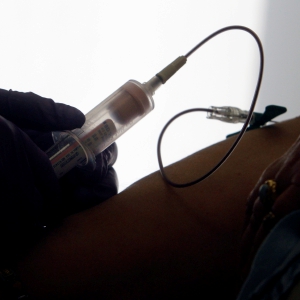Letter: Flea and tick treatments harmful to aquatic systems
| Published: 06-13-2021 8:00 AM |
Dogs who have recently received flea and/or tick treatments and dogs wearing flea and tick collars present a danger to the waters in which they are allowed to swim. The chemicals can kill a wide variety of invertebrates essential to the ecosystem. According to the Veterinarian News Service, “Active ingredients in many topical flea treatments, including in popular brands such as Advantage and Frontline Plus … can kill tiny aquatic insects that are a crucial food source for fish and birds.” The loss of small insects and other invertebrate creatures will cause irreparable harm to New Hampshire’s aquatic systems. The loss of this important, but comparatively, invisible food base can occur without much notice until the destruction of the ecosystem has gone past the point of no return.
I suggest four important remedies. I call upon residents and visitors to New Hampshire’s lakes and rivers to keep recently-treated dogs and dogs with chemical collars out of freshwater systems. The veterinary industry must employ safer alternatives to the toxic chemicals now in use. Various media statewide must report on this phenomenon to increase public awareness of the ecological threat, and the New Hampshire legislative bodies must consider legal protections for our freshwater ecosystems. Healthy aquatic ecosystems are essential to tourism and the New Hampshire way of life.
Chris Finer
Bristol
]]>
Yesterday's Most Read Articles
 Mother of two convicted of negligent homicide in fatal Loudon crash released on parole
Mother of two convicted of negligent homicide in fatal Loudon crash released on parole
 Students’ first glimpse of new Allenstown school draws awe
Students’ first glimpse of new Allenstown school draws awe
 Pay-by-bag works for most communities, but not Hopkinton
Pay-by-bag works for most communities, but not Hopkinton
 Regal Theater in Concord is closing Thursday
Regal Theater in Concord is closing Thursday
 With less than three months left, Concord Casino hasn’t found a buyer
With less than three months left, Concord Casino hasn’t found a buyer
 ‘Bridging the gap’: Phenix Hall pitch to soften downtown height rules moves forward
‘Bridging the gap’: Phenix Hall pitch to soften downtown height rules moves forward


 Opinion: Being and becoming: A good doctor in the age of artificial intelligence
Opinion: Being and becoming: A good doctor in the age of artificial intelligence Opinion: Bankers have the NH Public Deposit Investment Pool in their sights
Opinion: Bankers have the NH Public Deposit Investment Pool in their sights Opinion: Proposed height zoning change for Concord’s Main Street
Opinion: Proposed height zoning change for Concord’s Main Street Opinion: Members of NH Jewish community write letter to NH congressional delegation
Opinion: Members of NH Jewish community write letter to NH congressional delegation
